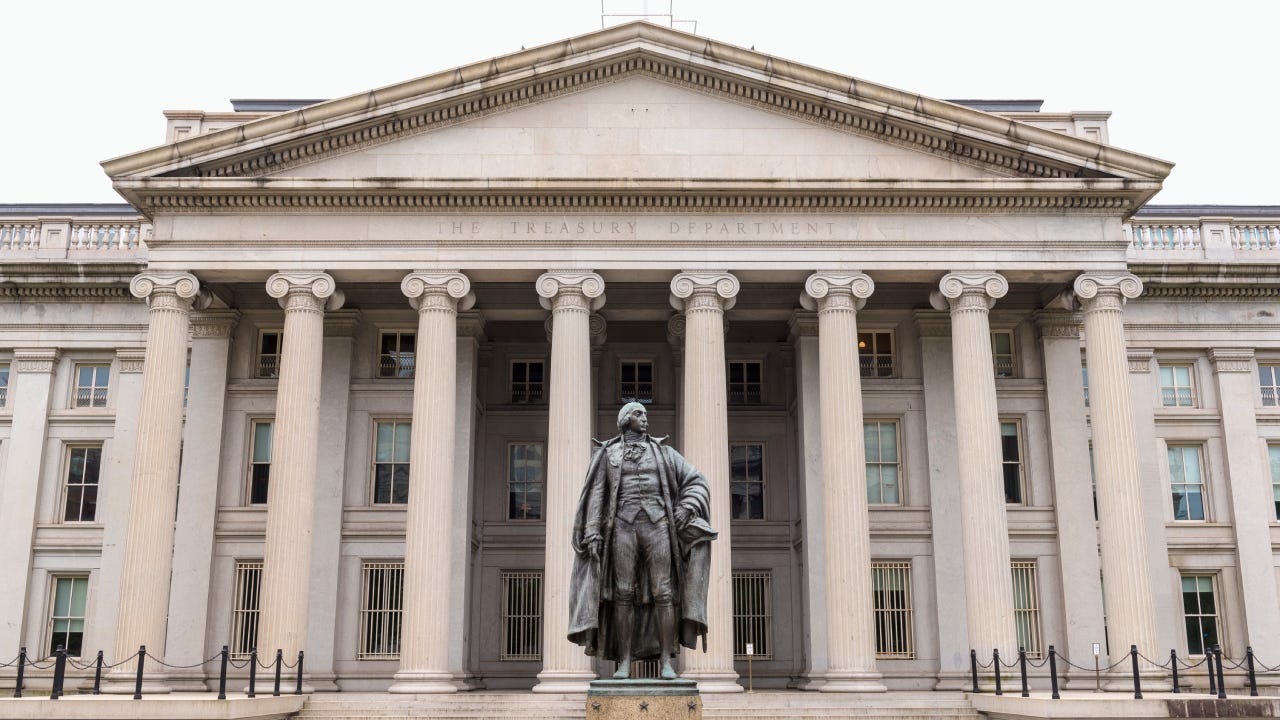What are Treasury bills?

Treasury bills are investments backed by the U.S. Department of the Treasury. Individuals or organizations can purchase Treasury bills directly from the Treasury or a bank, broker or dealer. T-bills are among the safest investments available. However, there are pros and cons to consider before buying Treasury bills.
What is a Treasury bill?
Treasury bills (T-bills) are short-term debt instruments backed by the U.S. Department of the Treasury. The government issues T-bills to finance its operations. They typically have maturities of four, eight, 13, 17, 26 and 52 weeks. T-bills are only issued electronically.
Because the U.S. government backs T-bills, they are virtually risk-free. There is very little risk of default, so investors can feel confident they will recoup their investment. However, most fixed-income securities are subject to inflation and interest rate risk. These have the potential to erode the value of your investment.
How Treasury bills work
T-bills are sold at a discount or face (par) value. Purchasing them at a discount allows investors to earn a return and receive the full value of the investment at maturity. The minimum purchase of T-bills directly from the Treasury is $100. Investors can make additional purchases in increments of $100.
T-bills don’t pay interest directly. Instead, the interest you receive is the difference between what you pay and your investment’s full value. When buying from TreasuryDirect, you must normally wait until the end of the term to receive your interest. However, buying and selling T-bills on the secondary market is also possible. If you don’t want to wait until maturity, you can sell your investment earlier in this way.
The relatively high liquidity, safety and favorable interest rates make T-bills an attractive investment for many investors and organizations. They can be used for many purposes, such as holding cash temporarily or diversifying a portfolio with riskier investments.
How inflation affects T-bills
Inflation affects T-bills because it may reduce the real return they provide. T-bills have a fixed return, meaning their return won’t increase even if inflation increases. For instance, suppose inflation is at 2.5 percent, and an investor purchases T-bills with a yield of 4.5 percent. If inflation rises to 5 percent, it would erode the purchasing power of the returns from the T-bills.
Interest rates can also be a major factor because the central bank often increases rates to combat rising inflation. When interest rates rise, so does the yield on new T-bills. This often leads to lower prices on existing T-bills since newer ones have higher yields.
T-bills and taxes
Investments are often subject to taxation, and T-bills are no exception. Earnings on T-bills are taxable at the federal level. Earnings are calculated as the difference between the purchase price and the face value at maturity. However, earnings on T-bills are exempt from taxes at the state and local levels, making them an attractive investment for individuals in high-tax cities or states.
Investors must report earnings from their T-bills on their federal tax returns the year they mature. If they sell a T-bill before maturity, they must report earned interest the year of the sale.
Pros and cons of Treasury bills
Pros
- Safe investment due to their U.S. Treasury backing
- Highly liquid with sales on the secondary market possible
- Earnings are exempt from state and local taxes
- Interest rates are competitive with those on high-yield savings
Cons
- Potentially lower returns than investments like stocks or real estate
- Subject to inflation and interest rate risks
- Taxable at the federal level
How to buy Treasury bills
There are several ways to buy Treasury bills, including directly from the Treasury or a bank, broker or other financial institution.
Buying through the Treasury is simple, especially if you already have a TreasuryDirect account. If not, visit the website and create an account. Then, on the TreasuryDirect website, go to BuyDirect, select Bills, and choose the maturity term. This could be four, eight, 13,17, 26 or 52 weeks. Finally, enter the purchase amount. If you haven’t already linked a bank account, you must link one. Once you have completed all these steps, you can submit the order to complete your purchase.
You can also buy T-bills through a bank, online brokerage or other financial institution. With these methods, you can purchase newly issued T-bills or purchase them on the secondary market. Either way, you must create an account or log in to your existing one. Then, search for T-bills, place your order and confirm. Be aware of auction dates, which indicate when you can place non-competitive bids directly with the Treasury or through your broker.
Bottom line
Treasury bills are short-term investments backed by the U.S. Treasury, making them a safe place to hold your cash and earn a modest interest rate. These investments are typically for one year or less, and you purchase them at a discount. At maturity, you receive the face value, letting you earn a return.
While T-bills are a safe investment, they are subject to interest rate and inflation risks. You can sell them on the secondary market, but the price may be lower than expected if inflation or interest rates rise. Still, their high liquidity, interest and safety make T-bills a good choice for many investors and organizations.
Why we ask for feedback Your feedback helps us improve our content and services. It takes less than a minute to complete.
Your responses are anonymous and will only be used for improving our website.






